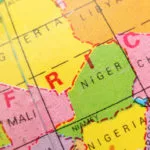
(LONDON) — Russia’s foreign minister, Sergei Lavrov, has announced that Wagner Mercenary Group is to continue its operations in Africa and its troops are set to remain in place following the aborted armed mutiny by Wagner mercenary fighters in Russia on Saturday.
Speaking in an interview with Russia Today, Lavrov said that the rebellion led by Wagner chief Yevgeny Prigozhin would not alter the group’s presence in Africa, saying “the work will continue.”
“In addition to relations with this PMC (Wagner), the governments of Central African Republic (CAR) and Mali have official contacts with our leadership,” said Lavrov. “At their request, several hundred soldiers are working in CAR as instructors. This work will continue.”
With the dramatic mutiny over and the Kremlin sending Wagner Chief Yevgeny Prigozhin to Belarus, the events raised questions for Wagner’s continued presence in Africa. The United States estimates that the paramilitary group is estimated to have some 5,000 members stationed across the continent, most of whom are currently stationed in Mali and the CAR.
“Around November 2017, some contractors affiliated with Wagner Group arrived in Sudan,” John Lechner, researcher, author and Wagner expert tells ABC News.
In early 2018, companies affiliated with Wagner began arriving in the Central African Republic, and their presence has become more and more intertwined with the political and military orbit of the West African nations.
Filling the void left by France’s military withdrawal, Mali and the CAR have turned to Russia as a strategic partner, with Wagner mercenaries aiding alongside military support in their fight against Islamist militants in the Sahel.
“We are not going to continue to justify our choice of partners,” said Mali’s foreign minister, Abdoulaye Diop. “This decision is a decision of the Malians and a decision that is taken with full responsibility. And Mali wants to work with Russia.”
However, Wagner’s operations in Africa have drawn much scrutiny in recent months and their presence has been linked to numerous human rights abuses and the extortion of natural resources. The group has also been designated as a “significant transnational criminal organization” by the U.S. Treasury.
“When the war in Ukraine broke out, and Russia pulled Wagner mercenaries out of the Central African Republic and other countries to support Putin’s invasion, many expected it would mean the end of Wagner prospects in Africa,” Nathalia Dukhan, senior investigator at The Sentry, told ABC News. “Instead, we documented Wagner’s mutation into an even more aggressive, predatory, and deadly monster that has been expanding, gaining an even stronger hold in countries like the CAR and Mali.”
A new report released by Washington-based investigative and policy organization The Sentry finds Wagner personnel have been implicated in “widespread, systematic and well-planned campaigns of mass killing, torture and rape” in the CAR.
“It’s safe to say that no one can really predict what will happen tomorrow or in a few months. The situation is extremely volatile but what we have learned from investigating and analyzing Wagner in Africa over the past five years is that the group is resilient, creative, fearless and predatory so it is less likely that the Wagner empire will instantly fall like a house of cards,” said Dukhan.
Following the aborted mutiny, the State Department took aim at Wagner’s illicit gold dealings in Africa, hitting four Wagner-affiliated companies in the United Arab Emirates, the CAR and Russia with sanctions.
Both the governments of Mali and the CAR have yet to comment on the recent mutiny or how that could affect the group’s future on the continent.
Copyright © 2023, ABC Audio. All rights reserved.
